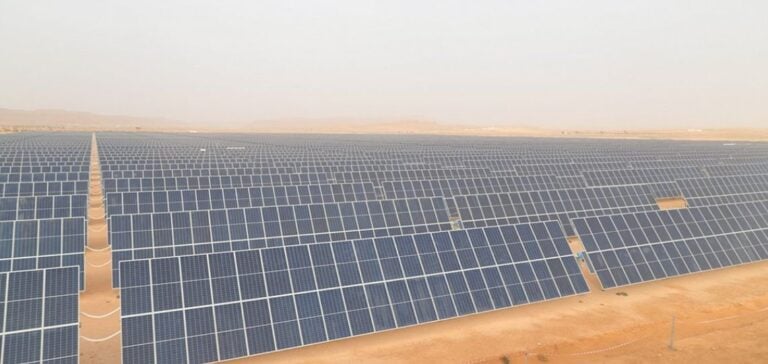TE H2, a joint venture between TotalEnergies and Eren, and Austrian utility Verbund, announce the signing of a memorandum of understanding with Tunisia for the construction of a green hydrogen production and export complex in the south of the country. Called “H2 Notos”, the project aims to produce hydrogen by electrolysis from solar and wind-generated electricity, for export to Europe via a pipeline. According to David Corchia, Managing Director of TE H2, the project plans to produce 200,000 tonnes of hydrogen per year by 2030, with the ambition of eventually reaching 1 million tonnes per year. Hydrogen is transported by pipeline to the north Tunisian coast, then via a marine gas pipeline and the future “SoutH2 corridor” pipeline linking Europe via Italy. This method is less costly than converting hydrogen into ammonia for transport by ship. However, the project faces a number of technical and logistical challenges, including securing the land and assessing the environmental impact of the wind turbines.
Technical challenges and international collaboration
The water needed for electrolysis is supplied by desalination of seawater, another technical challenge. For Tunisia, this agreement with TE H2 and Verbund marks an important step in its transition to clean, sustainable energy, according to Energy Minister Fatma Thabet Chiboub. This project is part of a worldwide race to green hydrogen, seen as a solution for decarbonizing industry and heavy transport, despite the problems of cost and technical complexity. TE H2 is also developing similar projects in other regions with strong solar and wind energy potential, including Morocco, Mauritania, Egypt, Finland and Australia. The aim is to produce green hydrogen on a large scale for export. TE H2’s most advanced project is on the southern tip of Chile, where the company has secured 120,000 hectares to install between 8 and 10 GW of wind power.
Global development outlook
David Corchia calls on the European Union to “think global” to support the green hydrogen industry in Europe. The “H2 Notos” project in Tunisia is not only an economic opportunity for the country, but also a strategic step towards strengthening Europe’s energy independence and reducing carbon emissions. This project could serve as a model for other similar initiatives around the world.
The collaboration between TotalEnergies, Eren, Verbund and the Tunisian authorities underlines the importance of international partnerships in the global energy transition. The success of these projects will depend not only on the ability to overcome technical, financial and regulatory challenges, but also on the commitment of public and private players to work together for a sustainable energy future.






















